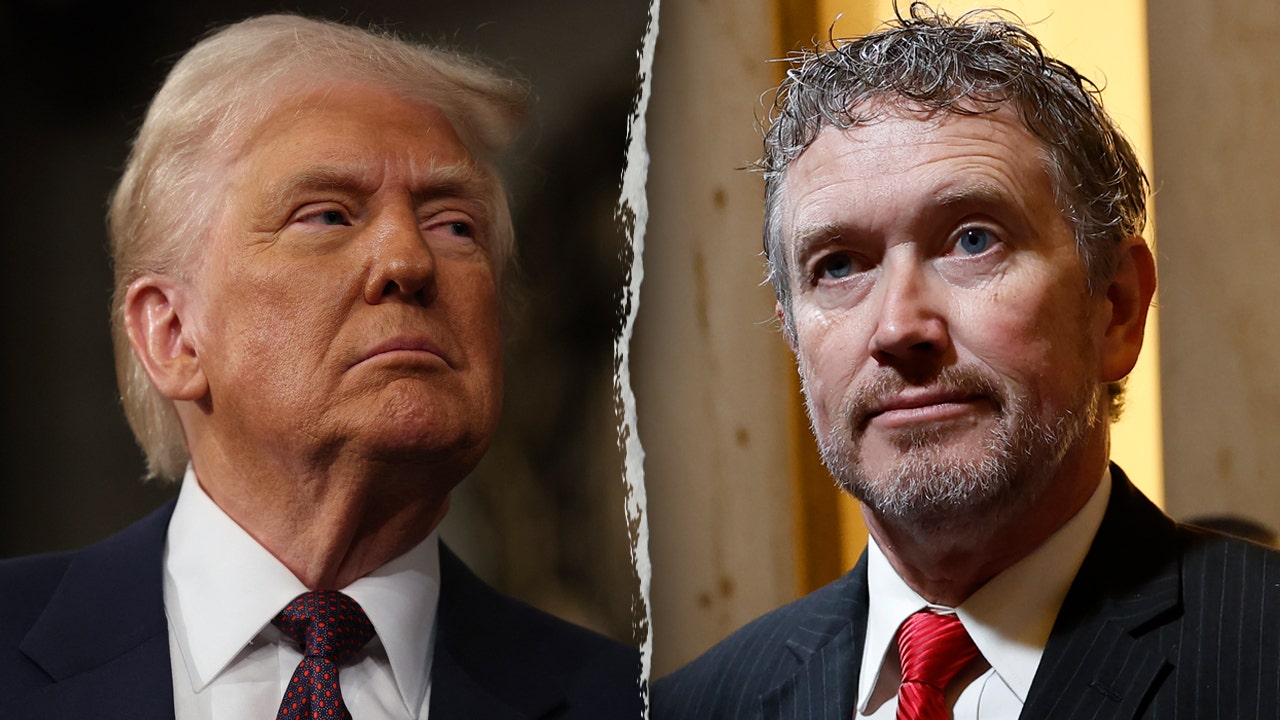What Happened
In June 2025, President Donald Trump authorized military strikes against three Iranian nuclear facilities: Fordow, Natanz, and Isfahan. This decision was met with immediate backlash from lawmakers, who criticized the strikes as unconstitutional due to the lack of congressional approval. Bipartisan concerns were raised, with some members of Congress arguing that the president’s actions violated the War Powers Resolution, which requires congressional authorization for military actions that could lead to war.
In response to Trump’s military actions, Representatives Ro Khanna (D-Calif.) and Thomas Massie (R-Ky.) introduced a War Powers Resolution aimed at limiting the president’s ability to engage in military conflict without congressional consent. They emphasized the necessity for Congress to assert its constitutional authority to declare war, as outlined in Article I of the U.S. Constitution. The situation has sparked a renewed debate over the balance of power between the executive and legislative branches regarding military engagement.
Key Details
-
Constitutional Authority: The U.S. Constitution grants Congress the sole power to declare war (Article I), while the president serves as the commander-in-chief of the armed forces (Article II). This division of powers has led to ongoing disputes about the extent of presidential authority in military matters.
-
War Powers Resolution: Enacted in 1973, the War Powers Resolution was designed to limit presidential military action without congressional approval. It mandates that the president notify Congress within 48 hours of military action and restricts military engagement to 60 days without congressional authorization.
-
Recent Legislative Actions: Following Trump’s strikes, lawmakers quickly moved to introduce resolutions to reaffirm congressional authority over military actions. The War Powers Resolution introduced by Khanna and Massie gained bipartisan support, reflecting a growing concern among lawmakers about unauthorized military engagements.
-
Historical Context: The last formal declaration of war by Congress occurred during World War II. Since then, U.S. military actions have often been justified under various Authorizations for Use of Military Force (AUMFs), which allow presidents to engage in military operations without a formal declaration of war.
Multiple Perspectives
Opinions on the necessity of congressional approval for military strikes vary widely among lawmakers and political analysts.
-
Support for Congressional Approval: Critics of Trump’s actions, including Khanna and Massie, argue that the strikes against Iran were unconstitutional and that Congress must reclaim its authority to declare war. They contend that unchecked presidential power could lead to prolonged military conflicts without public or legislative oversight.
-
Defense of Presidential Authority: Some lawmakers, particularly from the Republican party, have defended Trump’s decision as a necessary response to perceived threats from Iran. They argue that the president has the authority to act swiftly in defense of national interests and that the strikes were a legitimate exercise of executive power.
-
Public Opinion: Polls indicate that a significant portion of the American public is opposed to further military involvement in Iran, reflecting a broader wariness about U.S. military engagements abroad. This sentiment has been echoed by various lawmakers who emphasize the need for restraint and caution in military matters.
Context & Background
The debate over presidential war powers is not new and has been a contentious issue in U.S. politics for decades. The War Powers Resolution was enacted in response to the Vietnam War, aiming to prevent future presidents from engaging in military actions without congressional oversight. However, its effectiveness has been questioned, as presidents have frequently circumvented its provisions.
The current situation is further complicated by the historical context of U.S.-Iran relations, which have been fraught with tension, particularly since the U.S. withdrawal from the Iran nuclear deal in 2018. The strikes against Iranian nuclear facilities come amid escalating conflicts in the region, particularly between Israel and Iran, raising concerns about the potential for wider military engagement.
What We Don’t Know Yet
Several uncertainties remain regarding the implications of Trump’s strikes on Iran and the potential for further military action. The effectiveness of the War Powers Resolution in curbing presidential authority is still in question, particularly given the Republican majority in Congress, which may be less inclined to challenge the president’s decisions.
Additionally, the long-term consequences of the strikes on U.S.-Iran relations and regional stability are unclear. The reactions from Iran and other countries in the region, as well as the potential for retaliatory actions, remain to be seen. The ongoing discussions in Congress about the War Powers Resolution and any subsequent legislative actions will also play a critical role in shaping the future of U.S. military engagement in the Middle East.
As the situation develops, it will be important to monitor both the political landscape in Washington and the international responses to U.S. military actions in Iran.


